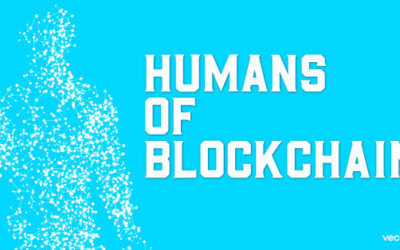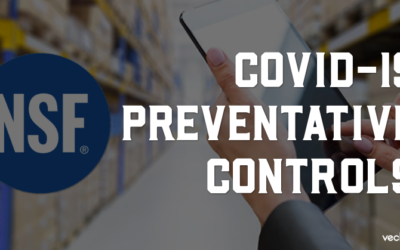On April 18th, founder Rik Rapmund announced his new blockchain-based startup, WorkPi. He described WorkPi as “Uber or Airbnb platform for the labour market, but owned by its users without commercial commissions and enriched by data applications powered by smart contracts.” He joined us to answer a few questions about the new platform he is currently developing.
Q1: First off, thanks for taking time to answer these questions. Could you talk a little about the state of the labor market, and why you felt a decentralized approach through blockchain was the correct way of solving this real-world problem?
Rik: Thanks for having me Ben! The answer to your first question consists of two parts: the labour market has an ethical and economic challenge. A lot of people in the recruitment industry say that ‘hiring is broken’, and I agree with them. The influence of recruiters on the hiring decision is too big, causing a huge bias in the process. Women & minority groups have a smaller chance of getting hired, which is unjust and irrational. We need to digitize the space and make unbiased decisions based on real data like assessments. From an economic perspective, the job market is dominated by mediating recruitment firms and changing due to the upcoming platform economy. Platform economies like Uber work really well for the users, but the commercial fees make them inefficient. With a decentralized approach, we can establish complete disintermediation, resulting in a very efficient shared economy.
Q2: Sites like LinkedIn, Glassdoor, and other job portals are very popular with job-seekers and employers. What gives WorkPi a competitive advantage over sites like that?
Rik: Social platforms like LinkedIn work very well because they offer free services and everybody is on it. However, people don’t realize that their personal data is the main selling point of the platform. WorkPi will not sell the data to third parties but incentivise you to leverage the data by sharing it with our AI-recruiter. The AI-recruiter will be a unique feature of WorkPi because it matches a candidate with real enterprise data. As soon as our AI-recruiter learns patterns, it will also be able to provide career advice based on a person’s unique WPI-profile.
Q3: What do you see as your target market? Are there any particular industries that you think are good fits for WorkPi?
Rik: It’s easy to mention our target market: every employer and employee/worker in the world! However, complex vacancies such as managers or consultants are still hard to fulfil because of the importance of soft skills. We will get better at measuring soft skills over time, but in the meantime, we will focus on hard skills. We conducted extensive market research within the U.S. to identify industries with a high number of jobs & hires per year. We decided to develop our MVP within the freelance and hospitality industry because we’re able to measure key skills, characteristics & preferences of hospitality workers and it’s a top volume industry with a lot of hires per year. We want to show the world an example of how people can work together peer-to-peer before we roll out in every other market you can think of. WorkPi is designed to target an enormous market, but we have to test and pilot our solutions in specific industries carefully.

Q4: Why did you choose VeChain to develop on?
Rik: Our grand vision is to develop a shared economy which is owned by its users. VeChain was the only public blockchain with an aligning strategy. The problem with PoW & PoS blockchains is that the foundation has no control over the selection of nodes providing the network. The only way to make sure that the network is provided by enterprises that derive utility from the rewarded token is to verify them (Proof of Authority). VeChain & WorkPi are both designed to be very scalable and adopted by extensive amounts of enterprises. If WorkPi proves to be working by improving HR & Recruitment processes, the enterprise partners within the VeChain ecosystem could also implement it easily (they are likely also steps ahead of their competition in the field of ‘smart money’ asset management).
Q5: How do you plan to onboard users who might not be familiar with blockchains and decentralized protocols?
Rik: I like that you’re asking me that. The fact that VeChain focuses on allowing people to use the blockchain unknowingly is another reason for us to use their chain. We will make sure that users don’t need any crypto-related knowledge to use WorkPi. For example, users will be able to pay for services with both $WPI tokens as fiat currencies.
Q6: How are you going to raise funds? Will you do an ICO?
There will probably be no ICO because we want our platform to be owned by its users. Enterprises will be the heavy users of the platform (workers only switch jobs a couple of times in their life, they have no incentive to hold $WPI long term). WorkPi will be funded by registered employers who hire a lot of employees on a yearly base. Maybe we will have a very small ICO for X-node holders and registered freelancers.
Q7: Can you tell us anymore about the projected roadmap for WorkPi?
The first year of our roadmap is very important because we are not planning to raise all our funds at the start. We want to prove that our solution could work with a MVP (Minimum Viable Product). We will raise the funds for the MVP through a seed round in Q3.
Q8: How can people get involved with WorkPi?
Rik: We will soon announce a way to get involved with WorkPi on the @WorkPi_official twitter. It will involve a whitelist to be one of the first users of the WorkPi Alpha release early next year.
To learn more about WorkPi, check out their website workpi.io and follow their twitter.





